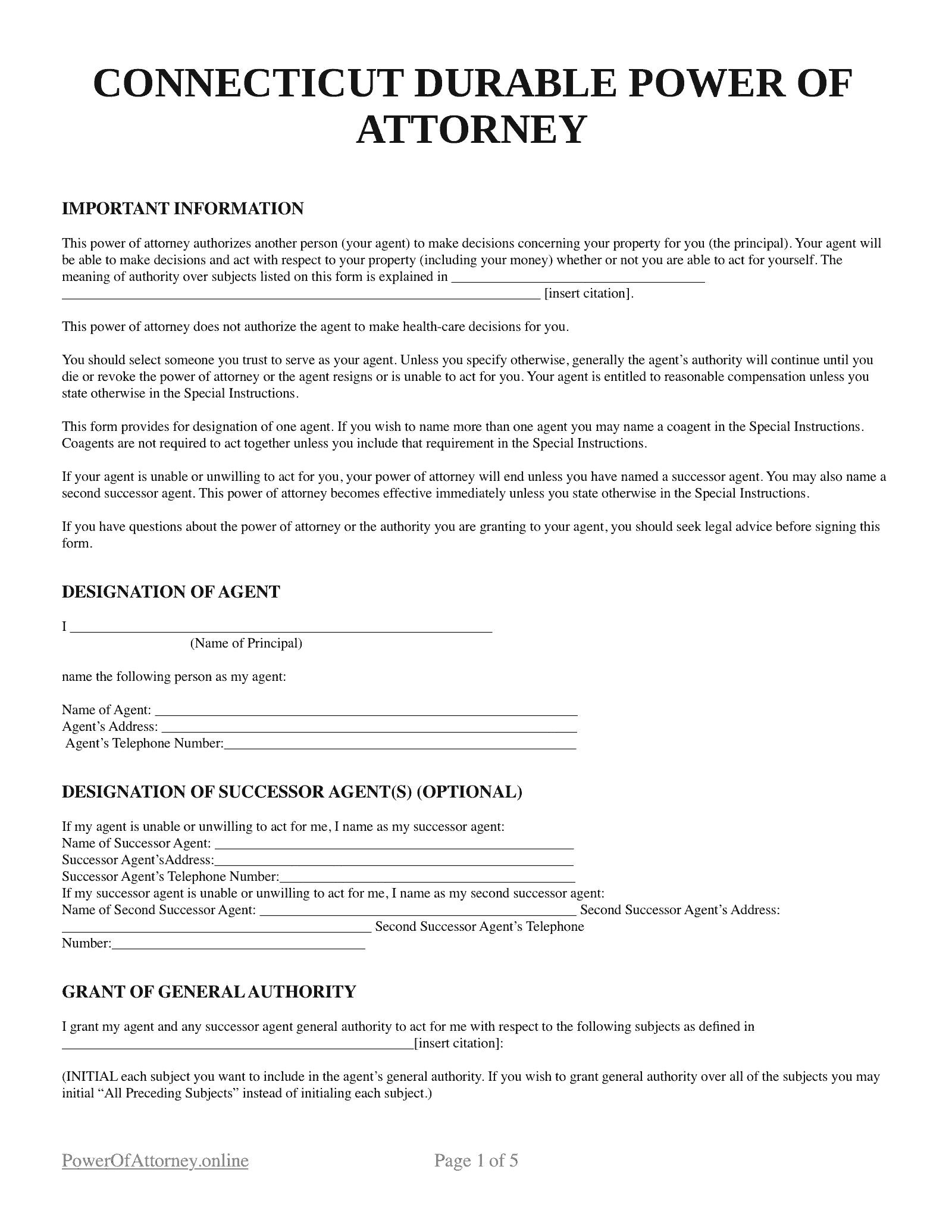Free Connecticut Power of Attorney Forms
There are certain transactions and decisions that only you can conduct in Connecticut. However, with a Connecticut power of attorney or POA, you can legally grant someone the authority to represent you, even if it concerns legal, financial, personal, medical, and business matters. In a POA, the person handing over authority to someone else is the principal, while the individual who will act on the principal’s behalf is referred to as the agent.
Let’s learn how POAs work as well as two common types of POAs: the durable and medical powers of attorney.

Connecticut Power of Attorney By Type
Powers of attorney are differentiated based on their duration and the nature of the authority given to the agent. Here are the distinctive qualities of durable and medical powers of attorney, which are both available in Connecticut:
- Durable Power of Attorney - this form is a POA that remains effective even when the principal becomes mentally incompetent. The document is important in ensuring that business and other legal matters are not hampered by the incapacity of the principal. However, it does not give the agent authority to make medical or healthcare-related decisions for the principal.
- Medical Power of Attorney - also called a healthcare POA or an advance healthcare directive, the medical POA allows the agent to decide on the principal's treatment, medication, diet, end-of-life care arrangements, and other healthcare-related matters. Like the durable power of attorney, the authority granted remains even if the principal becomes incapacitated. However, its durable nature can be nullified if the principal inserts a clause that limits and gives specific conditions for its validity.
How To Get a Power of Attorney in Connecticut
There are two ways to get a POA in Connecticut. You can get in touch with a local law firm that will create the document for you or download a printable template. If you want to save on expenses, the second option is simpler and cheaper. All you have to do is customize it with your instructions and sign it.
Durable POAs in Connecticut must be signed before a notary public and two witnesses. Meanwhile, a medical POA only requires two witnesses.
Connecticut Power of Attorney Laws
This is the main law to follow when executing a POA in the state of Connecticut. Part of the law states, “The meaning and effect of a power of attorney is determined by the law of the jurisdiction indicated in the power of attorney and, in the absence of an indication of jurisdiction, by the law of the jurisdiction in which the power of attorney was executed” (§1-350f: Meaning and Effect of Power of Attorney).